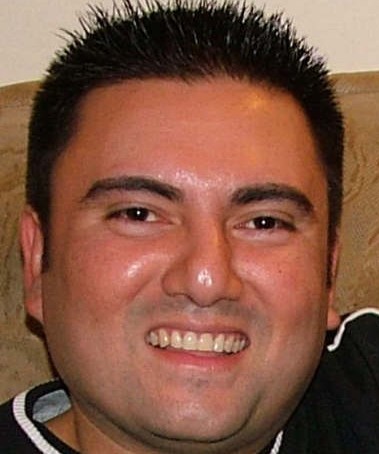Similar topics:
 It was with shock and anger that we heard the news that Arnos Grove train operator, Zak Khan, had been summarily dismissed (sacked with no notice) at a Company Disciplinary Interview (CDI) on 16th January. Zak had been referred to the CDI for an aggravated SPAD which took place on 24th October last year. Arnos Grove News has seen the case against Zak and believes that his summary dismissal is grossly unfair.
It was with shock and anger that we heard the news that Arnos Grove train operator, Zak Khan, had been summarily dismissed (sacked with no notice) at a Company Disciplinary Interview (CDI) on 16th January. Zak had been referred to the CDI for an aggravated SPAD which took place on 24th October last year. Arnos Grove News has seen the case against Zak and believes that his summary dismissal is grossly unfair.
There are many unanswered questions concerning the case against Zak, who has been open and honest with managers throughout the investigation into the incident. We believe that management has an ulterior motive for dismissing Zak in this manner, and we will explain this further on in this article. But, first, let’s look at the case and also the way in which Zak was stitched up during and after management’s ‘investigation’.
The SPAD
Zak overran the first semi-automatic signal leaving Boston Manor eastbound. He immediately tried to contact the line controller on his train radio, but was told by the controller that he could not hear him clearly and to try another means of contact. Zak then tried his hand-held radio but found that the batteries were flat, so he contacted the Arnos Grove DMT on his mobile phone. He informed the DMT of the SPAD and of his inability to contact anyone by radio. The DMT told him to get the train moving and that he would arrange for someone to provide him with a working radio at Acton Town eastbound. In the meantime, Zak became aware that the spadded signal had cleared and that the signals ahead were also clear. It was under these circumstances that Zak moved his train towards Northfields, passing the next two signals showing clear aspects. Although there was no danger to anybody, Zak now knows and accepts that he shouldn’t have taken authority to move his train via a mobile phone; but he has held up his hands and admitted his error from the start.
The ‘Investigation’
When Zak reached Acton Town, he was relieved and told to report to the Acton DMT to whom he wrote a report of the incident. He was then sent to Arnos Grove where he was met by a DMT who gave him a letter saying he had been stood down pending investigation of the incident.
So what happened next? First of all, the DMT who told Zak he should proceed to Acton Town later denied that Zak had told him that he had had a SPAD. Despite the fact that this particular DMT has a long history of lying and incompetence, his word was accepted without question.
The Arnos Grove TMA who was on duty at the time of Zak’s phone conversation with the DMT was also interviewed and claimed that a SPAD was never mentioned – this was offered as ‘evidence’ despite the fact that the TMA could only have heard half of the conversation!
Zak was summoned to two fact-finding interviews, the first of which he attended alone having not been informed of his right to union representation.
Management then went on to construct a case that would show Zak in the worst possible light and set him up for dismissal at the CDI. They were selective in the evidence they put into the CDI brief in order to justify Zak’s dismissal. Mitigating factors were omitted and Zak’s rep, Glenroy Watson, was prevented from investigating the area where the SPAD took place.
The final result of this deceitful and dishonest process was that a conscientious and honest driver was virtually called a liar before being callously sacked by the Chair of the CDI.
WHY WAS ZAK SACKED?
So why did the company go to so much trouble to get rid of Zak? We think that Zak’s dismissal is the latest event in a management strategy to test the strength of our union in the run-up to this year’s pay negotiations; a strategy that has included issuing maximum warnings for minor infringements of the Attendance at Work policy, unannounced home visits to sick staff, nuisance phone calls to the same, and draconian punishments for one-off mistakes such as Zak’s.
More work, less pay!
The company has already made it clear that it wants a 5-year deal with no real improvements in conditions, but with big increases in productivity – more work for less pay. They have also said things which indicate that our pension scheme is now under threat. Now, the Piccadilly line is the strongest line on the combine (from the point of view of union strength), so the company knows that if it can ignore agreements such as the Attendance at Work policy and if it can sack drivers such as Zak with impunity on our line, then they will reasonably think that they will be able to impose an inferior deal upon the whole combine in the forthcoming pay negotiations. We cannot and must not allow this to happen.
FIGHTBACK
Zak’s case will now be appealed. But we would be foolish to expect justice from the company. The union is calling for a ballot for industrial action by drivers on the Piccadilly line in support of Zak; papers should be sent out soon. Vote YES to fight for Zak’s job. Vote YES to tell management we refuse to work in a climate of fear. Vote YES to let the company know we will never give up our hard-won terms and conditions. Zak has a wife, two children and a mortgage. The company couldn’t care less about this. And what happened to Zak could happen to any one of us. The time has come to stand up and be counted. VOTE YES
STEP-BY-STEP GUIDE TO SACKING A DRIVER
1. Arnos DMT denied telling Zak he could proceed – his version of events accepted without question
2. TMA claimed there was no mention of a SPAD in telephone conversation between Zak and DMT – even though he could only have heard half of what was said!
3. Zak denied representation at first fact-finding interview
4. Zak’s rep prevented by management from checking the section where SPAD took place
5. Chair of CDI claims to be able to reach an accurate judgment of incident despite admitting that most of the recorded conversations are almost inaudible and not presented in chronological order
6. Failure to seek train download evidence that driver did try to speak to controller
7. Mitigating circumstances not considered
8. Good previous work record ignored
9. Drivers involved in similar and worse incidents treated more leniently
- 4571 reads




